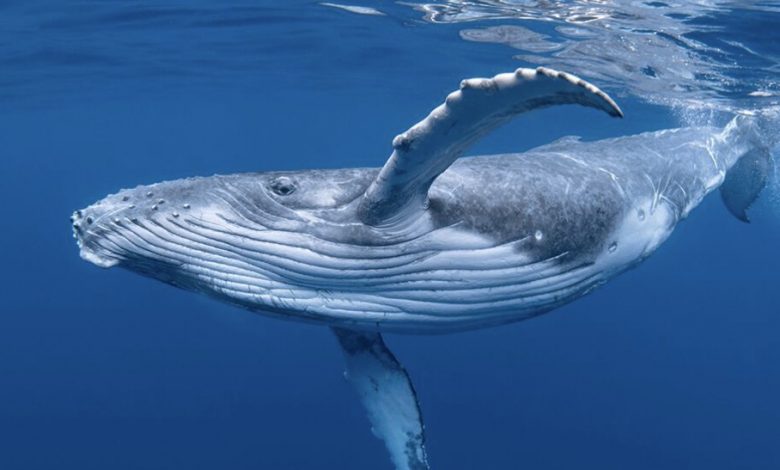Etymology and definitions

Etymology and definitions
The word “whale” comes from the Old English hwæl, from Proto-Germanic *hwalaz, from Proto Indo European *(s)kwal-o-, meaning “large sea fish”.[2][3] The Proto-Germanic *hwalaz is also the source of Old Saxon hwal, Old Norse hvalr, hvalfiskr, Swedish val, Middle Dutch wal, walvisc, Dutch walvis, Old High German wal, and German Wal.[2] The obsolete “whalefish” has a similar derivation, indicating a time when whales were thought to be fish.[citation needed] Other archaic English forms include wal, wale, whal, whalle, whaille, wheal, etc.[4]
The term “whale” is sometimes used interchangeably with dolphins and porpoises, acting as a synonym for Cetacea. Six species of dolphins have the word “whale” in their name, collectively known as blackfish: the killer whale, the melon-headed whale, the pygmy killer whale, the false killer whale, and the two species of pilot whales, all of which are classified under the family Delphinidae (oceanic dolphins).[5] Each species has a different reason for it, for example, the killer whale was named “Ballena asesina” ‘killer whale’ by Spanish sailors.[6]
The term “Great Whales” covers those currently regulated by the International Whaling Commission:[7] the Odontoceti family Physeteridae (sperm whales); and the Mysticeti families Balaenidae (right and bowhead whales), Eschrichtiidae (grey whales), and some of the Balaenopteridae (Minke, Bryde’s, Sei, Blue and Fin; not Eden’s and Omura’s whales).[8]
